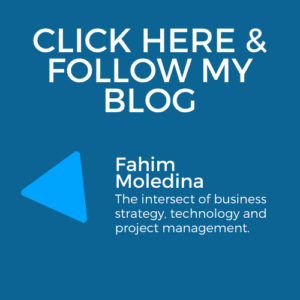What is Organizational Knowledge, Writes Fahim Moledina Towards the Leaders

People are no longer inspired by authorities. They are empowered and inspired to perform better due to the impact of leaders. The ability to influence others, in the opinion of Fahim Moledina, isn’t a “pleasant thing to have.” In reality, this is a crucial ability that allows leaders to apply more organizational expertise in the modern world.
What does organizational intelligence or knowledge imply?
Organizational intelligence, also known as organizational knowledge, is the specialized information that a company has, acquired either via its personnel’s personal or collective experiences. This knowledge is being used, or has the potential to be used, to forward the goals of the organization, either explicitly or implicitly.
Organizational intelligence and Influence
It is essential to comprehend an organization’s hierarchy and workings in order to move through it and exert influence to advance new ideas. There is a formal framework that must be obeyed, but in order to exert influence, one also needs to be aware of the overarching framework, often known as politics.
Initiatives are frequently advanced more successfully by leaders who are adept at navigating informal organizational structures than by those who are not.
The significance of organizational knowledge
Organizational intelligence is crucial for influencing others. This also applies to leaders, who must understand how to market themselves and their position within the company. Additionally, when leaders empower and elevate their colleagues, they have a greater impact.
Servant leadership is becoming more and more common, particularly in agile contexts. This style of leadership requires the use of persuasion and persuasion to remove conflict and roadblocks that prevent the team from moving forward.
The need for organizational knowledge
Organizational intelligence is required to be able to get rid of these obstacles. Fahim Moledina asserts that CEOs can traverse organizations as politically engaged people by developing their social capital. Utilizing their organizational intelligence, they can exert influence while increasing the effectiveness of their company.
Final Thoughts
You might want to think about Fahim Moledina if you’re looking for guidance and advice on how to build your team or yourself as a leader in general. He is an authority in several areas of business development and organizational expansion.



Recent Comments